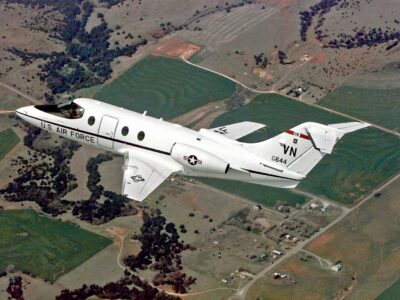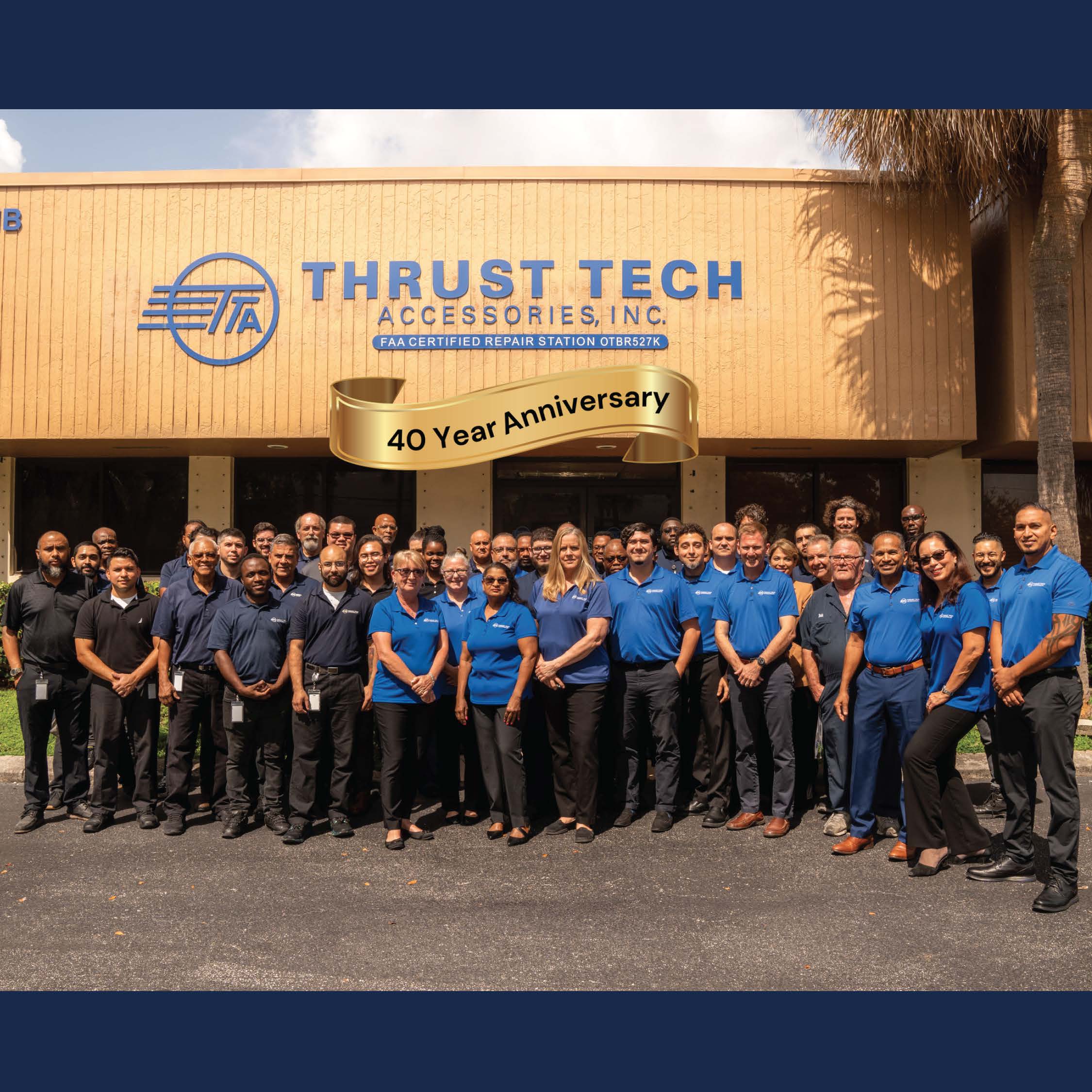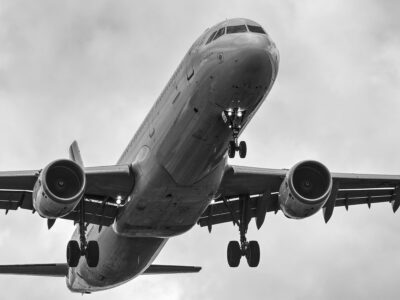
Issues within the Foreign Aviation Accessory Component
& Overhaul/Repair Sector Cause Airlines
and Private Jet Operators to Look to the U.S. Market
When it comes to aviation maintenance, repair, and overhaul (MRO) services, Thrust Tech Accessories, an FAA/EASA Certified 145 Repair Station based near Fort Lauderdale Executive Airport, is definitely seeing more business “flying to” U.S. soil in 2021, particularly from the Middle East, South America, and Europe.
“Overall, our international business has grown from 18 percent of our total sales/revenue pre-pandemic to close to 35 percent over the past year,” says Stanley Kowlessar, president and general manager of Thrust Tech Accessories (TTA). “We’re learning from new customers or potential new clients that their foreign MRO operator either have either ceased operation entirely during the pandemic or sizably cut back their skilled labor force.”
Keeping Planes in the Air
Here’s the dilemma. As a result of pandemic-era cutbacks at major airlines and MRO facilities overseas: regional, corporate, business jet, and private aircraft operators are now in need of reliable accessory component and overhaul and repair services. “They absolutely need to keep their planes in the air from a business standpoint, while, at the same time, ensure they’re meeting all regulatory requirements and keeping the skies safe for their passengers,” Kowlessar emphasizes.
That’s been a challenge as some sectors of the business jet, corporate, or private aircraft markets have experienced increased demand following the easing of some international travel restrictions. “Travelers who could afford it and didn’t want to wear a mask for hours on end or deal with commercial airport terminals, so they chose to charter airplanes instead,” he explains.
In addition, based on slow vaccine roll-outs in Europe and the need for more intra-Europe coordination about health and safety rules, commercial aviation’s recovery on some routes and to certain cities is best described as “anemic.” That coupled with increasingly strong pent-up consumer demand for leisure travel has resulted in travelers relying on private aircraft and business jets to get around.
Another key factor fueling strong private aircraft and business jet usage? Something called “virtual fatigue.”
“While Zoom calls or other virtual online meetings have done wonders for businesses who didn’t want employees traveling during the pandemic, increasingly some companies now seek to return to face-to-face business meetings,” Kowlessar acknowledges.
In fact, one U.K. based air charter broker is seeing soaring business – publicly projecting to reach 85 percent of its pre-pandemic business as early as the end of this year. For example, that same broker’s private jet bookings for April have increased 25 percent when compared with April 2019.
Gradual Commercial Restart
“As the global aviation industry navigates out of the restriction period, Thrust Tech Accessories also sees short-hop, regional, and passenger aircraft returning to the skies, and the footprint has changed as regional, corporate, bizjet and private carriers will have a larger piece of the pie as we come out of this era” says Kowlessar. That’s in step with a forecast by the International Air Transport Association (IATA) that global passenger numbers will climb to 52 percent of pre-pandemic levels this year, and increase to 88 percent of pre-pandemic levels in 2022.
But IATA also projects that commercial passenger boardings won’t exceed pre-pandemic levels until 2023. Separately, the European Organization for the Safety of Air Navigation, commonly known as EUROCONTROL, recently issued a report projecting that domestic and international air traffic in Europe isn’t expected to reach 2019 levels until 2024 at the earliest. Heading into this summer, many restrictions remain in place in Europe and by year-end 2021, EUROCONTROL believes airline traffic will still only be at 50 percent of 2019 levels.
As a result, many people, business travelers in particular, likely will continue to look to private aircraft and bizjet operators to fly them from Point A to Point B. And that’s good news for TTA, as these operators also will have greater need for MRO services to keep their older planes flying.
“Due to the increase in charter operations owing to the COVID-19 pandemic, the demand for business jets is expected to increase in the coming years,” according to one Mordor Intelligence report. In addition, “with the growth of the tourism sector in Latin America and Southeast Asia, many charter operators are making plans to introduce new charter routes in the regions and further expand their presence.”
New International MRO Business
With the influx of new business, much of it from overseas, TTA sales/revenue is already back to pre-COVID-19 levels over the past six months. Kowlessar envisions a more diversified customer base, consisting of both domestic and international operators, as the global aviation industry continues to chart its path to recovery.
Confident about the future, Kowlessar acknowledges that while the past 15 months certainly haven’t been easy, TTA remained open even during the slowest of times in 2020. Most importantly, the company didn’t have a need resort to major layoffs or pay cuts.
“Whereas some competitors were forced to shut down or really struggled to keep their MRO facility open, Thrust Tech stayed the course retaining its most valuable resources – its team members,” Kowlessar stressed. Founded three decades ago and under new management since 2017, the veteran-owned and operated company continues to serve existing customers and also many new customers who were unable to receive MRO services from their normal provider.
Challenges for the future? Moving forward, TTA as with many other businesses will need to continue to hire more new employees as business grows. “Since we’re located in Florida, a business-friendly state, this has provided some advantages versus other states, but the challenge is still there,” Kowlessar notes.
Right now, though, he says TTA is staffed up, employs a skilled work force, has a large parts and OEM inventory, and is ready to welcome new customers, as it’s done over the past year – and increasingly from overseas aircraft operators.
“We trust they’ll likely remain with us for the long haul, given that we have proven that TTA is there for them regardless of what challenges may surface in the future.”






